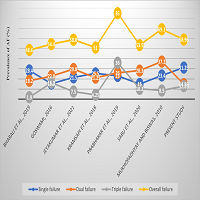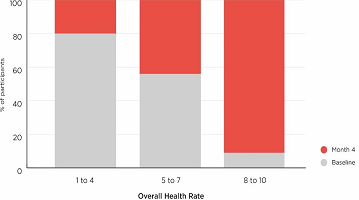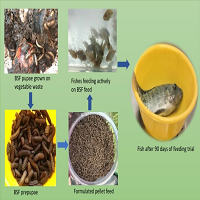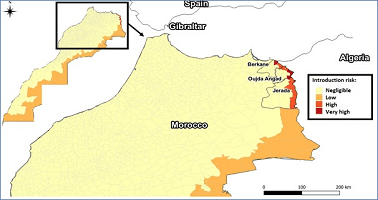Hepatocellular carcinoma (HCC), one of the most frequent neoplasms worldwide, causes more than 700,000 deaths per year and is the third cause of cancer-related mortality.1-3 HCC occurs after years of damage to hepatocytes with inflammatory conditions due to Hepatitis B Virus (HBV) or Hepatitis C Virus (HCV) infection resulting in chronic hepatitis and/ or cirrhosis. The disease incidence is decreasing due to Hepatitis B Virus (HBV) vaccination, whereas rates are steadily increasing in Europe and the United States possibly due to increased obesity and Hepatitis C Virus (HCV) infection.3 The latest antiviral drug, Sofosbuvir (Sovaldi, Gilead), has achieved notable success in clinical trials and approved against HCV and gives great hopes for treatment and hopefully preventing HCV-induced liver cancer. Unfortunately, other risk factors like alcohol abuse, fungal toxins, obesity, and poor diet are also associated with HCC and will not be easily wiped out anytime soon. If diagnosed early, HCC can be cured with surgery or a liver transplant. However, most HCC cases can only be diagnosed at advanced stages, and are accompanied with chronic liver disease such as hepatitis and fatty liver disease. Sorafenib, the only approved multi-kinase inhibitor, is the current first-line therapy for the advanced HCC and can only lead to a survival benefit of 2-3 months. Sorafenib inhibits the growth of blood vessel formation and the cancer cells by targeting key kinases like RAF-1, B-RAF, VEGFR and PDGFR.4 Since the approval of Sorafenib, drug companies have spent tremendous effort for testing a variety of molecular therapies targeting angiogenesis to oncogenic signaling pathways many of which still under clinical evaluation. Unfortunately, none of these drugs could exhibit superior efficacy to Sorafenib. The failure of these inhibitors can be explained by their lack of efficacy, toxicity and coexisting genetic and epigenetic alterations.2 Thus, more radical approaches are required to treat HCC. Several clinical trials are currently testing the safety and efficacy of multi-tyrosine kinase inhibitors and other targeted therapy agents alone or in combination with Sorafenib in advanced HCC. Here, we summarize the current state and emerging novel targeted therapies as well as ongoing clinical trials for the treatment of HCC.
Unlike many solid tumors showing strong “oncogene addiction”, in which the proliferation and survival of cancer cells depends on a single oncogene and usually responsive to its inhibitor or antibodies (such as Gefitininib targeting EGFR in lung cancer, Vemurafenib targeting BRAF in melanoma and Crizotinib targeting ALK in Non-Small Cell Lung Cancer (NSCLC)), no such oncogene dependency has been shown in HCC yet. Genome sequencing of HCC patients have identified several driver genes.5-7 Notably, these studies confirmed that mutations in
driver genes such as EGFR, BRAF, PIK3CA or KRAS, are rarely mutated in HCC. Instead, recurrent mutations of TP53 and CTNNB1 (beta-catenin) are highly frequent in more than half of HCC cases.6 Recent studies also identified novel mutations in the promoter of Telomerase reverse-transcriptase (TERT) gene in great percentage of HCC patients.8,9 TERT promoter mutations are one of the most frequent events in liver cancer causing an in increase the expression of telomerase transcript. The increased expression of telomerase gene helps hepatocytes to bypass the senescence barrier. Nevertheless, these mutations are in general hard to target for HCC therapies.
Deep-sequencing effort also identified novel activating mutations in JAK1 gene implicated in JAK signal transducer and activator of transcription (JAK-STAT) signaling pathway; and RPS6KA3 gene in Ras/Mitogen-activated protein kinase (MAPK) pathways.6,7 Given the role of JAK/STAT signaling pathway in the tumor growth and survival, preclinical studies have shown that JAK1 inhibition represents an attractive new therapeutic target for HCC. An antisense oligonucleotide inhibitor of STAT3 has just completed phase I/II clinical trial for advanced HCC with encouraging results. Moreover, focal amplifications of cell cycle gene CCND1 and deletions of CDKN2A were observed in HCC suggesting that HCC tumors are good candidates of CDK inhibitor trials. Furthermore, focal gene amplification of the genes encoding the receptor tyrosine MET, and FGF-receptor ligand (FGF19) and downstream signaling genes MYC has been observed in HCC. A phase III trial of tivantinib, a small molecule inhibitor against c-MET showed an overall survival advantage of 7.2 months in MET-high patients.10 These observations suggested that a patient stratification strategy based on activated signaling pathways or mutation signatures should become a norm for HCC clinical trials, like in other cancer types. A recent preclinical study showed that activation of MAPK signaling pathway leads to Sorafenib resistance and combined inhibition of MAPK and Sorafenib significantly prolonged the survival of mice.11 Combinations of MEK inhibitors and Sorafenib are being evaluated in clinical trials for advanced HCC.
Several epigenetic targets, many of which are chromatin-remodelling enzymes like ARID1A, ARID2, KMT2A and MLL3 are also found to be frequently mutated in HCC and the role of these mutations in HCC and how to target these mutant genes are yet to be discovered. Other targeted agents undergoing clinical evaluation can be summarized as follows: VEGFR inhibitors (Tivozanib, Axitinib, Lenvatinib and Regorafenib), anti-endoglin antibody targeting angiogenesis (TRC105), antiIGF-1R monoclonal antibody (cixutumumab), Hedgehog (Hh) pathway targeting inhibitor (LDE225), small molecule inhibitor targeting NF-κB and the Wnt signal transduction pathways (CF102), inhibitor of Transforming Growth Factor- β (TGF-β) (LY2157299), proteasome inhibitor (Oprozomib), lipid nanoparticle formulation of a small interfering RNA (siRNA) directed against PLK1 (TKM-080301) and hypoxia activated pro-drug (TH302). These agents are now being tested in the clinic either as mono therapy or in combination with Sorafenib or other chemotherapy agents.
Recently, advances in immunotherapy has shown notable success for advanced melanoma, renal cell carcinoma and lung cancer treatment. Companies also have shown great interest to target immune checkpoints for advanced hepatocellular carcinoma. Current immunotherapy options available against HCC can be summarized as: checkpoint inhibitors activated T-cell therapy, vaccines and oncolytic virus therapy. Of these, checkpoint inhibitors have recently shown dramatic clinical success. Cancer cells escape being attacked by the immune cells via expressing cell surface agents such as Programmed cell death protein ligand (PD-L1). The goal of immunotherapy is to block such immune-suppression mechanisms to turn on the patient’s own immune system to destroy cancer cells. Different checkpoint inhibitors in trials against HCC are: an antibody targeting anticytotoxic T-lymphocyte-associated protein 4 (CTLA-4) (Tremelimumab), an antibody targeting anti-programmed celldeath protein 1 (PD-1) (Pembrolizumab) and an anti-PD-L1 antibody (MPDL3280A) and multiple others. Other immunotherapy trials include activated T- cell therapy (Immuncell-LC activated T-lymphocyte), Dendritic Cell Vaccine (COMBIG-DC), ex vivo Expanded Allogeneic NK Cell (MG4101) and Oncolytic Adenovirus injection (Telomelysin). However, these agents may not be available for patients with hepatitis due to viral infection since activation of the immune system in the presence of viral hepatitis can cause hepatocyte damage.
CONFLICTS OF INTEREST
The authors have no conflicts of interest to disclose.






